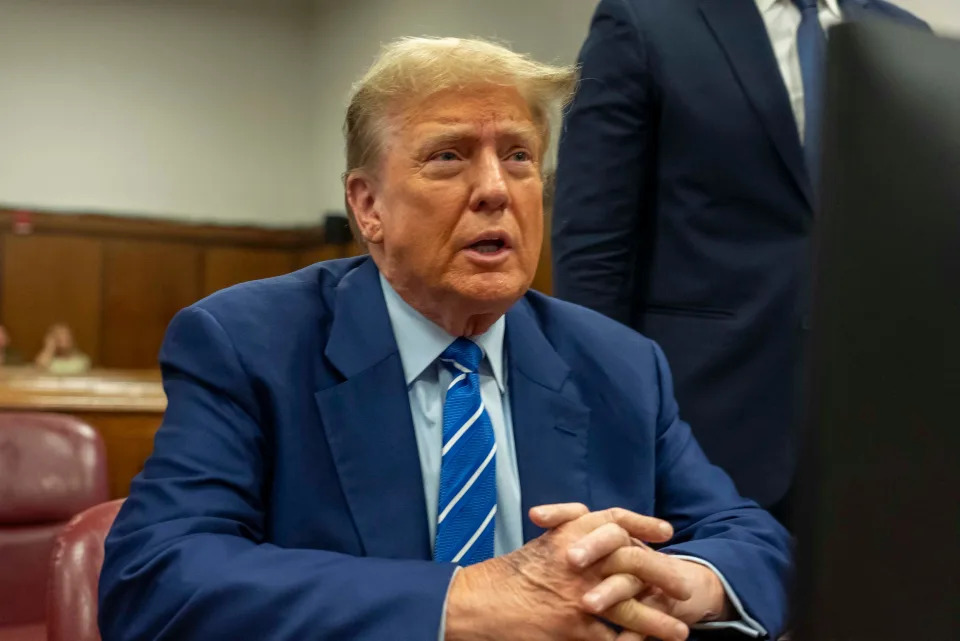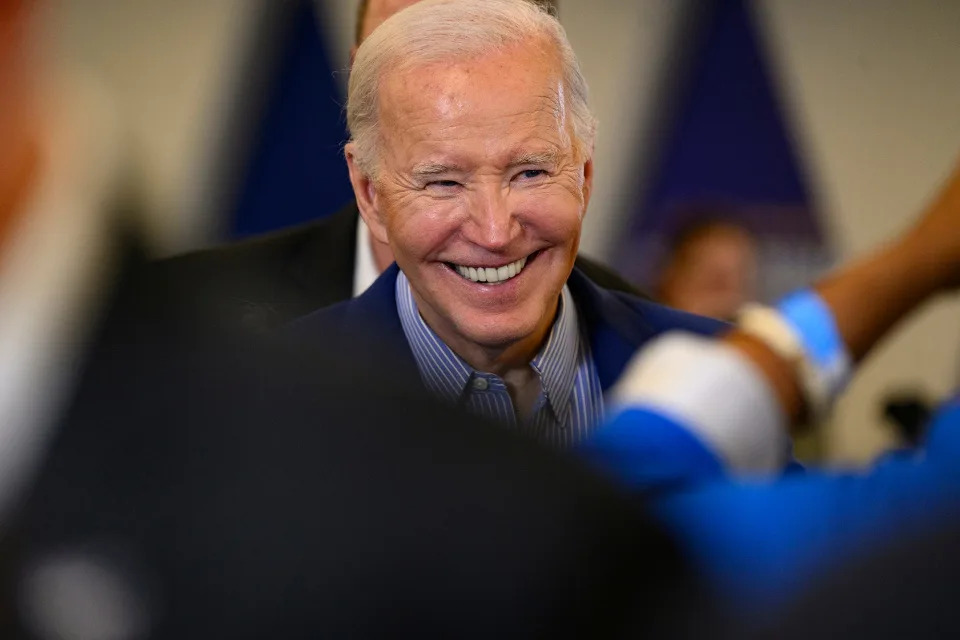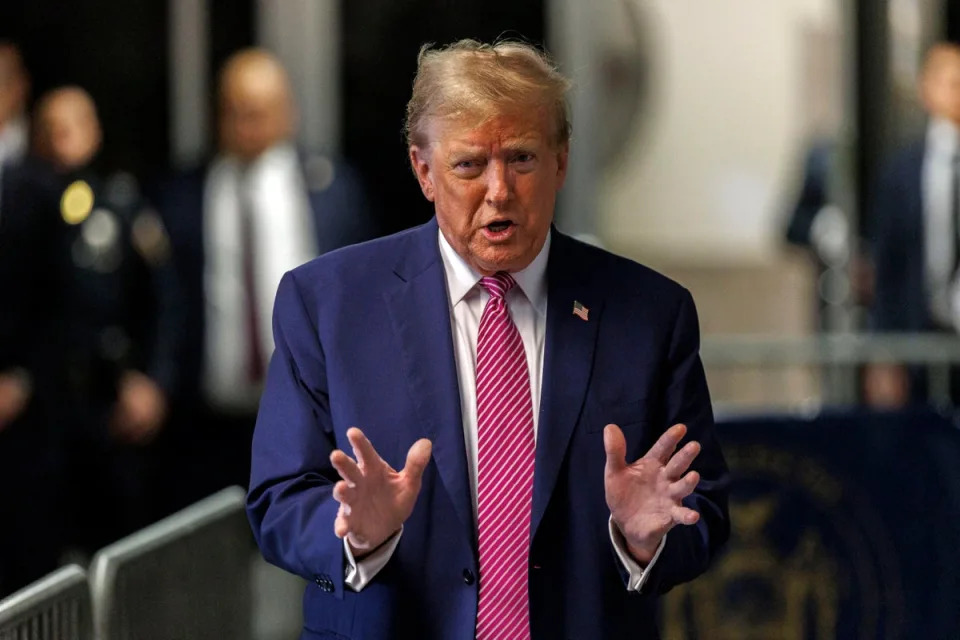Associated Press
Russia pummels exhausted Ukrainian forces with smaller attacks ahead of a springtime advance
The Associated Press – April 19, 2024






Russian troops are ramping up presure on exhausted Ukrainian forces to prepare to seize more land this spring and summer as muddy fields dry out and allow tanks, armored vehicles and other heavy equipment to roll to key positions across the countryside.
With the war in Ukraine now in its third year and a vital U.S. aid package for Kyiv slowed down in Congress, Russia has increasingly used satellite-guided gliding bombs — which allow planes to drop them from a safe distance — to pummel Ukrainian forces beset by a shortage of troops and ammunition.
Despite Moscow’s advantage in firepower and personnel, a massive ground offensive would be risky and — Russian military bloggers other experts say — unnecessary if Russia can stick to smaller attacks across the front line to further drain the Ukraine military.
“It’s potentially a slippery slope where you get like a death by a thousand cuts or essentially death by a thousand localized offensives,” Michael Kofman, a military expert with the Carnegie Endowment, said in a recent podcast to describe the Russian tactic. If the Russians stick to their multiple pushes across the front, he said, “eventually they may find more and more open terrain.”
Last summer’s counteroffensive by Ukraine was doomed when advancing Ukrainian units got trapped on vast Russian minefields and massacred by artillery and drones. The Russians have no reason to make that same mistake.
UKRAINIAN FORCES EXPOSED
Last November, Ukrainian President Volodymyr Zelenskyy ordered his forces to build trenches, fortifications and bunkers behind the more than 1,000-kilometer front line, but analysts say construction work moved slowly, leaving areas unprotected.
“If the defensive lines had been built in advance, the Ukrainians wouldn’t have retreated in such a way,” Ukrainian military expert Oleh Zhdanov said. “We should have been digging trenches through the fall and it would have stemmed Russian advances. Now everything is exposed, making it very dangerous.”
In a recent podcast, Kofman also said that Kyiv is “quite behind on effectively entrenching across the front” and “Ukraine does not have good secondary lines.”
After capturing the Ukrainian stronghold of Avdiivka, Russian troops are zeroing in on the hill town of Chasiv Yar, which would allow them to move toward Sloviansk and Kramatorsk, key cities in the Kyiv-controlled part of the Donetsk region in eastern Ukraine. Russia illegally annexed Donetsk and three other regions in 2022, and the Kremlin sees fully controlling that region as a priority.
Zhdanov said Ukraine doesn’t have the firepower to repel Russian attacks.
“They promised to have a defensive line 10 kilometers (6 miles) behind Avdiivka where our troops could get and dig in, but there is none,” he said.
Gen. Christopher Cavoli, head of U.S. European Command, sounded the alarm before Congress last week, warning that Ukraine will be outgunned 10 to one by Russia in a matter of weeks if Congress does not approve more military aid.
IN RUSSIA’S SIGHTS
After securing another term in a preordained election in March, President Vladimir Putin vowed to carve out a “sanitary zone” to protect Russia’s border regions from Ukrainian shelling and incursions.
Putin didn’t give any specifics, but Russian military bloggers and security analysts said that along with a slow push across the Donetsk region, Moscow could also try to capture Ukraine’s second-largest city of Kharkiv, which Russia tried and failed to take in the opening days of the war.
In a possible sign of a looming attack on Kharkiv, a city of 1.1 million about 30 kilometers (some 20 miles) south of the border, Russia has ramped up strikes on power plants in the area, inflicting significant damage and causing blackouts.
Ukraine doesn’t have enough air defense to protect Kharkiv and other cities, and the constant Russian strikes are part of Moscow’s strategy to “suffocate” it by destroying its infrastructure and forcing its residents to leave, Zhdanov said.
Retired Lt. Gen. Andrei Gurulev, now on the defense committee of Russia’s lower chamber of parliament, acknowledged that capturing Kharkiv is a major challenge, and he predicted the military would try to surround it.
“It can be enveloped and blockaded,” he said, adding that taking Kharkiv would open the way for a push deep into Ukraine and require more Russian troops.
After Putin’s order for “partial mobilization” of 300,000 reservists last fall proved so unpopular that hundreds of thousands fled abroad to avoid being drafted, the Kremlin tried a different approach: It promised relatively high wages and other benefits to beef up its forces with volunteer soldiers. The move appears to have paid off as Defense Minister Sergei Shoigu said the military recruited 540,000 volunteers in 2023.
“There are no plans for a new wave of mobilization,” Viktor Bondarev, deputy head of defense affairs committee in the upper house of parliament, said in remarks carried by state RIA Novosti news agency. “We are doing well with the combat capability that we have.”











